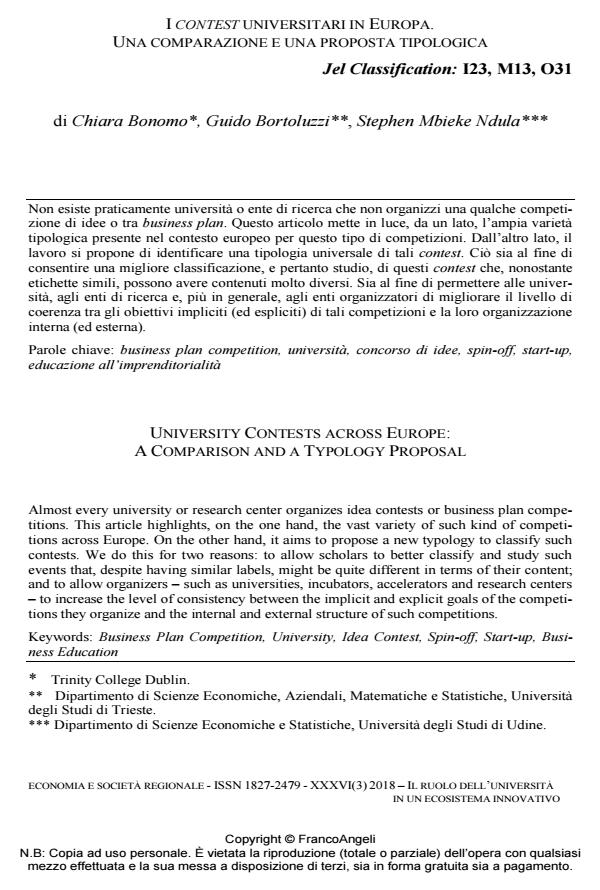I contest universitari in europa. Una comparazione e una proposta tipologica
Titolo Rivista ECONOMIA E SOCIETÀ REGIONALE
Autori/Curatori Chiara Bonomo, Guido Bortoluzzi, Stephen Mbieke Ndula
Anno di pubblicazione 2018 Fascicolo 2018/3
Lingua Italiano Numero pagine 14 P. 28-41 Dimensione file 444 KB
DOI 10.3280/ES2018-003003
Il DOI è il codice a barre della proprietà intellettuale: per saperne di più
clicca qui
Qui sotto puoi vedere in anteprima la prima pagina di questo articolo.
Se questo articolo ti interessa, lo puoi acquistare (e scaricare in formato pdf) seguendo le facili indicazioni per acquistare il download credit. Acquista Download Credits per scaricare questo Articolo in formato PDF

FrancoAngeli è membro della Publishers International Linking Association, Inc (PILA), associazione indipendente e non profit per facilitare (attraverso i servizi tecnologici implementati da CrossRef.org) l’accesso degli studiosi ai contenuti digitali nelle pubblicazioni professionali e scientifiche.
Non esiste praticamente università o ente di ricerca che non organizzi una qualche competizione di idee o tra business plan. Questo articolo mette in luce, da un lato, l’ampia varietà tipologica presente nel contesto europeo per questo tipo di competizioni. Dall’altro lato, il lavoro si propone di identificare una tipologia universale di tali contest. Ciò sia al fine di consentire una migliore classificazione, e pertanto studio, di questi contest che, nonostante etichette simili, possono avere contenuti molto diversi. Sia al fine di permettere alle università, agli enti di ricerca e, più in generale, agli enti organizzatori di migliorare il livello di coerenza tra gli obiettivi impliciti (ed espliciti) di tali competizioni e la loro organizzazione interna (ed esterna).
Parole chiave:Business plan competition, università, concorso di idee, spin-off, start-up, educazione all’imprenditorialità
Chiara Bonomo, Guido Bortoluzzi, Stephen Mbieke Ndula, I contest universitari in europa. Una comparazione e una proposta tipologica in "ECONOMIA E SOCIETÀ REGIONALE " 3/2018, pp 28-41, DOI: 10.3280/ES2018-003003